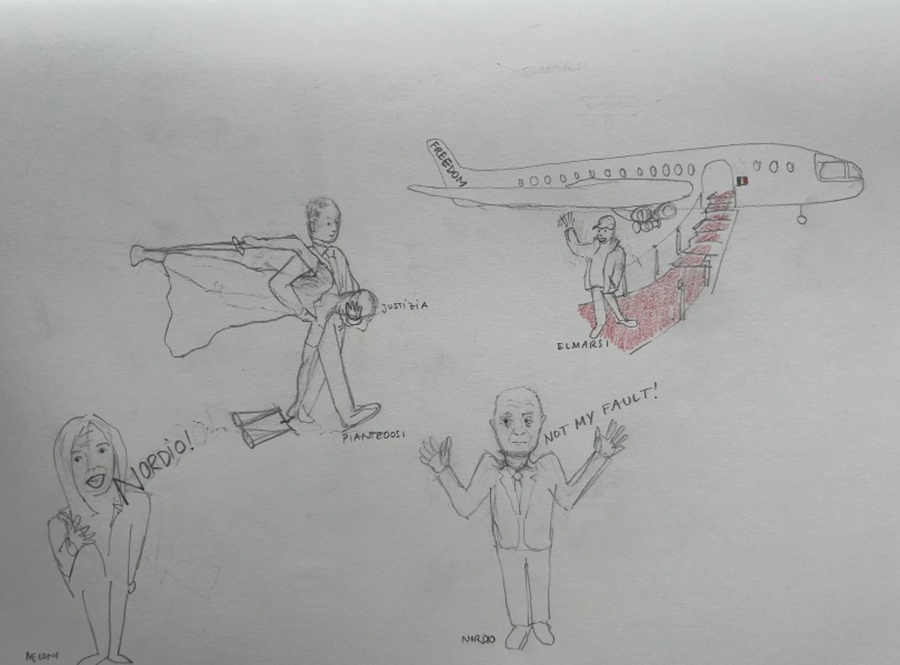A spokesperson for the NGO Refugees in Libya has questioned why Libyan judicial police commander Najeem Osama Almasri Habish was released and sent back to Libya. The issue was raised during a press conference held by opposition members at the Lower House on Wednesday.
David Yambio, a Sudanese activist, said the group, which represents “survivors and victims” of Almasri, also called for an end to agreements between Italy and Libya that allow abuses against migrants. Almasri is alleged to have overseen prison facilities in Tripoli.
Refugees in Libya, founded in Italy last year, also demanded a government commitment to securing the release of detainees still held in Libyan detention centres. Yambio also requested an explanation as to why Almasri, whom Interior Minister Matteo Piantedosi previously described as dangerous, was released instead of being handed over to the International Criminal Court (ICC).
Almasri was arrested in Italy last weekend on an ICC warrant but was later released and flown back to Libya. The ICC has asked Italy for an explanation. Almasri led Tripoli’s Mitiga detention centre, where migrants, including children, were tortured and forced to fight.
The court said he is suspected of crimes against humanity and war crimes, including murder, torture, rape, and sexual violence, allegedly committed in Libya from February 2015.
Refugees tell of torture and abuse
During Wednesday’s press conference, several refugees said they had suffered torture and abuse at Almasri’s hands. Some displayed photos of their escape attempts from Mitiga.
“Almasri hit us and tortured us for days,” said Lam Magok. He added he was forced to remove bodies of those who died at the camp. “It’s something I’ll never forget. We want justice.” He called Almasri’s release “a huge shock.”
The press conference was organised by the Green-Left Alliance (AVS). Also in attendance were Italian Left (SI) leader Nicola Fratoianni, Democratic Party (PD) leader Elly Schlein, +Europa leader Riccardo Magi, and Italia Viva (IV) lawmaker Maria Elena Boschi.
Italy has a deal with Libya to support its coast guard in exchange for cooperation in stopping migrant crossings. The 2017 agreement has been criticised by NGOs for allegedly enabling illegal pushbacks. Renewed every three years, the agreement has the backing of the European Council. Migrants intercepted by the Libyan coast guard are often sent to detention centres, where they face harsh conditions and abuse.




